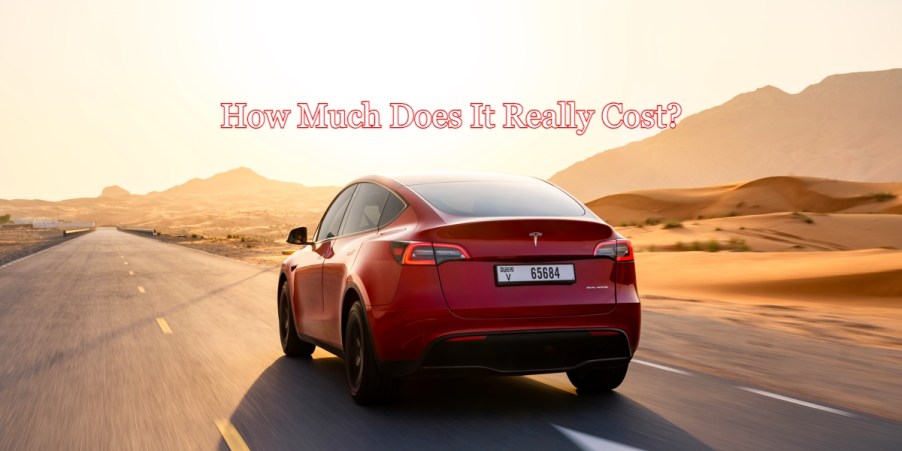
Thousands Of Americans Are Overpaying for Electric SUVs: Don’t Make the Same Mistake
Did you know that thousands of American drivers are technically paying more for their electric vehicles than they need to? Why? According to a new study conducted by BlueLabs, an analytics and technology solutions firm, a large percentage of Americans have no idea what the federal electric vehicle tax incentive is or how to apply it. So, what are consumers missing, and how can they save thousands of dollars on an electric SUV from brands like Tesla and Ford?
Why aren’t Americans redeeming the EV tax credit for electric SUVs?

First, there is a large percentage of Americans who are aware of the EV tax incentive and use it to their benefit. That said, based on a poll by BlueLabs, thousands of American drivers are potentially unaware of how they can save big bucks on their next electric SUV.
So, what is the federal electric vehicle tax incentive? In short, the U.S. government is actively incentivizing consumers to purchase electric vehicles. This incentive helps automakers justify higher starting prices for EVs that are necessary for stable profit margins. Furthermore, it helps consumers afford electric vehicles.
The federal EV tax credit is a win-win for automakers and consumers. The problem is not enough drivers know it exists. Just how much money is this costing drivers?
How much can drivers save with the EV tax credit?
Vehicles that are eligible for the full tax incentive qualify for a $7,500 tax credit. This means that many drivers who purchase qualifying EVs will get more money back with their tax refund. If a driver’s yearly taxes amount to more than $7,500, the incentive can still reduce their total tax expenditure.
Automakers would like consumers to consider tax credit eligibility when looking at the starting prices of an EV. Many automakers provide disclaimers on websites, and companies like Tesla even estimate a vehicle’s post-incentive price after the tax credit and other savings are accounted for.
Drivers can save as much as $7,500 on popular electric SUVs like the Tesla Model Y. Since such a large number of consumers aren’t even aware of the incentive, many new Model Y drivers could be oblivious to the huge benefit. The table below depicts the starting prices of popular electric SUVs after the redemption of the federal electric vehicle tax incentive.
| Popular Electric SUV | Starting MSRP Before Federal EV Tax Credit | Price After Incentive |
| Tesla Model Y (Base) | $43,990 (Tax Credit Eligibility of $7,500) | $36,490 |
| Ford Mustang Mach-E Select | $42,995 (Tax Credit Eligibility of $3,750) | $39,245 |
| Volkswagen ID.4 Standard | $38,995 (Tax Credit Eligibility of $7,500) | $31,495 |
Clearly, redeeming the EV tax credit can drastically reduce the overall price of popular electric SUVs. So, how is the incentive best used?
Excellent models for utilizing the EV tax credit

In 2023, one electric SUV reigns supreme. Furthermore, it arguably provides more value than any of its rivals. The Tesla Model Y is the most popular electric SUV by leaps and bounds.
The EV tax incentive makes its most desirable configuration affordable enough for the average driver. The Tesla Model Y Performance starts at $52,490. After the incentive, its price is closer to $44,990. It goes from 0-60 miles per hour in just 3.5 seconds. The federal electric vehicle tax credit is making some electric SUVs like the Model Y Performance a steal in 2023.



